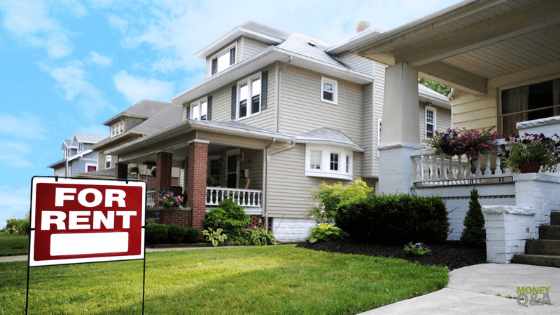
Investing in property is an excellent way to diversify your portfolio, build a financial haven, and generate recurring income. With so many advantages to this strategy, it’s no wonder that many people are eager to acquire rental properties and become landlords.
However, the term “passive income” is often misused for this investment strategy. Getting started with property investments and becoming a landlord can be incredibly demanding. As this is a high-stakes investment, it’s vital not to take this decision lightly.
Here are five things to consider before becoming a landlord.
Type of Rental Property
The first thing to consider when investing in a rental property is what type is right for you. The options typically come down to a single-family dwelling or multi-family dwelling of varying sizes. For example, both a duplex and a large apartment building fall under the multi-family umbrella.
Most investors looking for some extra income rather than building a career as a property investor will opt for a single-family home or small multi-family residence. Some engage in house hacking, in which a multi-family unit is purchased, and the landlord lives on-site with their costs covered by the other rental units. This decision ultimately depends on your goals, finances, and bandwidth to manage tenants.
Your Financial Situation
Your first rental property shouldn’t be your only source of income. Additionally, if you won’t be able to cover the mortgage if your tenant is late on rent, you’re not ready to be a landlord.
Owning a rental property is ideal for those with a financial cushion to fall back on when maintenance issues and rent defaults occur— because they will. While getting landlord insurance is a must to cover you from extensive damages and liability, you also need liquid assets to cover challenges as they arise.
Local Legalities and Regulations
Take the time to research the local rental legalities and regulations before you decide to purchase a rental property or invite tenants to an existing property. Regulations change from state to state and even city to city. Many states have even put new regulations in place for rent control and eviction prevention for the pandemic, which may extend into the foreseeable future.
When you put together a lease agreement, it’s also worth having a lawyer review everything before you use it. While you can get templates online, these generalized documents are meant to be a starting point, not a legally sound agreement.
Screening and Retention Protocols
Consider what screening processes you’ll put in place as a landlord. The more stringent and in-depth you go, the less likely you are to get a bad tenant. Set clear ground rules about what steps are necessary for living in your rental— everything from credit and reference checks to mandatory renters’ insurance. You may also want to set rules against allowing friends or colleagues to rent without going through the same channels.
In addition to screening new tenants, consider how you’ll keep good tenants to maximize your investment. Create structure around your approach. Remember, owning a rental property is a business; processes and strong interpersonal boundaries are essential for success.
Managing Time and Commitments
The idea of passive income is perhaps the biggest myth about real estate investing. While many established investors get to a point where they have the resources and financial freedom to outsource and delegate, that’s not the reality for most landlords.
Consider how you’ll handle maintenance, administration, groundskeeping, etc. Do you have the time to handle these things, or will you pay to outsource your property management? If you don’t have the resources to outsource your property management, how will you make time with your other responsibilities?
Don’t become a landlord if you can’t commit to the work. Doing so will create frustration with tenants and end up losing you money.
Keep these critical considerations in mind before becoming a landlord. This role isn’t suitable for everyone.
